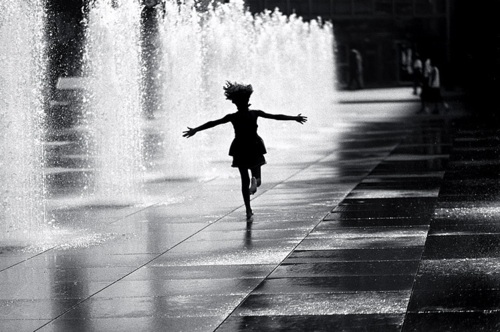When we decide to get divorced, we often go to extremes to secure the best possible advice and counselling money can buy and then we take comfort in the perception that we are acting in the best interest of all involved.
Family is, after all, the most important thing in this world and we’ll stop at nothing to protect them. During this trying time, we strive to be compassionate by offering a shoulder to cry on, a sounding board or simply quiet companionship to our loved ones.
So while my family and I were diligently going through therapy sessions, consultations and all kinds of coaching, I realised how blissfully ignorant I was of the single most powerful antidote: joy. Yes, even though we might be going through the most destructive conflict or utterly devastating roller-coaster ride of rejection, resentment or even revenge, this is one thing that we’ll always find in our daily lives.
We need to ask ourselves when last we listened, I mean really listened, to the happy singing of the birds at dawn? Have we stopped to watch the radiant colours of a new day breaking on the horizon in the past six months? Do we wake from the squealing laughter of our children, angry because they are disturbing our peace or delighted because they are cheerful little beings?
Do we still remember the songs and dances we improvised while helping our toddler get dressed, or are we hurried and irritated because we might be late again? Do we laugh ourselves silly because the shirt is on backward and looks really funny, or do we hastily pull it off and fix it without even considering giving our child the much needed opportunity to try again and learn from the experience?
Perhaps we rush everybody through breakfast so that we can clean up in time before having to leave for school? What if we started 10 minutes earlier and allowed the kids to help with preparations and experiment with a few new ideas? Wouldn’t that be fun? Wouldn’t that bring all of us joy?
When we have time for a quick quiet coffee break, do we gulp it down standing, glancing at our watch all the time, or do we sit down momentarily, smell the rich aroma and savour the moment? Would two minutes really disrupt our day that much?
Have we looked into our teenagers’ eyes recently and felt the magic of being in love for the first time, or have we become so cynical that we are blind to the sheer excitement of an innocent crush?
Do we share the pride and huge sense of achievement when our child scores that goal, wins that prize or earns that distinction, or are we simply too exhausted and pre-occupied with the drama and stress of our own lives, to care?
When the doorbell rings, are we pleasantly surprised to see our friends and grateful for the visit, or do we promptly dump all our complaints and negative energy? Do we make an effort to hear our friends’ latest news and share in their happiness or are we so bogged down in our own suffering that we hardly hear what they are telling us?
What happens when we collect our children after school? Do we still get out of the car and meet them at their classroom like we did when they were little, or do we wait in the car impatiently for them to hurry up because we have a hectic afternoon ahead of us? What if we actually got out of the car, kneeled down to their level and looked them straight in their eyes? Would we still be able to tell, just by looking at them, how their day was? Would we recognise their excitement to tell us something and engage eagerly?
How about dinner time? Do we still make the effort to plan a palatable meal for our family or do we absent-mindedly throw something unimaginative together with the least effort? Do we still enjoy the homely smell of food cooking and the anticipation of taking that freshly baked dish out of the oven? Do we still allow the little ones to lick out the mixing bowl and grin at their messy faces or do we quickly rinse it out to prevent them from making an even bigger mess in our kitchen?
Do we ever let our kids get really dirty and play like that for as long as they want to, or are we overly concerned about getting them clean again?
Do we even know what it feels like to throw all caution to the wind, go absolutely wild and just mess things up? Are we still able to be crazy and silly without inhibition, like when we were little ourselves?
Imagine if we still had the time and patience to walk along with our toddler, at their pace—we might notice the flowers along the path or look up and discover the beauty of blue skies again. Better yet, if we dared to engage in a little racing with our competitive teenager we might just re-ignite the exhilaration of fear combined with the thrill of a challenge.
While pondering this, I had to ask myself: “Hey, do I jump up and dance with joy, when that old time favourite hit of mine is playing on the radio and reminds me of my carefree younger years, or do I slump further down thinking how old I am getting? Do I still sing along word for word, or have I forgotten how it goes?”
Let’s consider for a moment, when last we sat down with our children or grand-children to tell them a family story as they hang on our every word, eyes glistening with anticipation. Or have we given up long ago, convincing ourselves that they will neither be interested nor fascinated by old people’s tales?
Is bed-time a mad rush with a quick kiss good night, or a battle of wills to get everyone to settle down? Why don’t we indulge in the splendour of a fairy tale for our babies and thoroughly enjoy the wonder in those little eyes as they get carried away on the magic carpet? We also need to allow ourselves to thrive on the inspiration of our own reading once in a while.
Compassion should not only be for someone’s pain and suffering, but also include a profound empathy for their joy as well as our own delight in it. Therefore we ought to acknowledge and embrace it whole-heartedly. It means actively looking for the joyous moments and grabbing them.
While there is certainly a time and a place for formal counselling and professional support, embracing the smallest little joy might very well be the best therapy that we and our families could get, by far.
Author: Sinta Ebersohn
Editor: Catherine Monkman
Photo: Beth Scupham at Flickr









Read 0 comments and reply